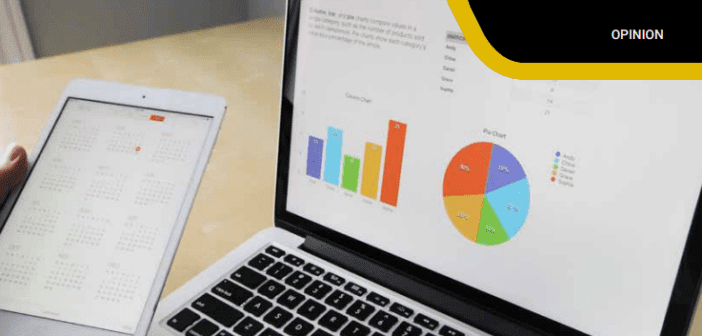By CPA Gideon Mokaya
A recent Press report shows that nearly half of the tea offered for sale at Mombasa Tea Auction was withdrawn from the trading floor as traders prioritized buying higher quality grades of the commodity. The report also states that the teas had been offered for sale a couple of times in the previous auctions but buyers turned their noses up due to alleged overpricing. The explanation given was that some of the commodity had been recycled but were still being sold at the same price.
The root cause of the issue was the introduction of a minimum price of $2.43 per kilo of teas in 2021 in order to cushion farmers from prices that are below the cost of production. A well-intended policy change is reported to be affecting some tea producers negatively since buyers are, understandably, being extremely selective about the teas they purchase. The price-quality relationship in the marketplace is noteworthy. This is an illustrative example of how a well-intended policy intervention on the commodity pricing may yield unintended implication of negatively affecting the many smallholder tea farmers.
The history of price controls is centuries old. Proponents of price controls have argued that these measures, firstly, reduce prices by curtailing producer incomes and middlemen brokerage incomes. Secondly, although price controls may distort market signals, they have indirect non-economic effects such as convincing the citizens that inflation does not erode their savings, that abnormal profiteering is under control and that the economic burden is being fairly shared.
Thirdly, where inflation is increasing, monetary authorities tend to set statutory price limits with the intention to contain inflation without resorting to higher interest rates. Fourth, in markets devoid of competition due to monopolistic power, price limits can ensure there is no shortage of specific goods or services. Short-term price controls have also been experienced when a country is going through some form of economic shocks such as war or pandemics where there is pent-up demand and supply chain shortages.
The key question is: is effective competition always preferable to price control? There is tension between free markets and stable prices that price control measures must contend with. The Governments objectives of introducing price controls include curbing inflation, eliminating profiteering and encouraging or forcing the populace to save more of their income, and encouraging efficient consumption that mitigates the negative effects of exogenous factors such as climate change.
Supporters of free market economy argue that price controls do not address the underlying cause of inflation. Excess demand will still exist and price controls will make goods more attractive. If inflation is a result of a shortage of goods and increased input costs, the said shortages cannot be addressed by imposing price limits. Price controls can drastically reduce the incentive for firms to increase supply; for instance, if prices are rising due to constrained supply chain.
A rise in prices creates an incentive for firms to increase supply. However, if Governments pursue price controls, the incentive to increase supply dwindles. Price controls can make shortages last longer and also lead to wasteful economic activity as people queue to access limited goods; as well as encourage growth in the black market economy. Additionally, price controls lower the incentive to invest, and would generally have unintended consequences. The most notable is that keeping prices lower leads to lower supply and the shortage of good may last for longer.
Price controls can either be maximum or minimum prices. A maximum price means firms are allowed to set price ceilings. The intent is to reduce prices below the market competitive equilibrium price. Maximum pricing is advantageous to consumers and may be beneficial if a supplier has monopoly power that exploits consumers.
Maximum prices are usually reserved for socially important goods, such as staple foods. In contrast, minimum prices offer producers a higher income and disadvantage consumers through higher prices for goods and services. Minimum prices encourage oversupply of goods/services and therefore create inefficiencies. To maintain minimum prices, governments have to put in place high import tariffs to ensure prices stay artificially high.
Resale price maintenance, a form of minimum pricing, is illegal as per the Competition Act No. 12 of 2010 since it prevents retailers from competing on price thus increasing what consumers pay. The Act also prohibits resellers and distributors from demanding suppliers to sell competitor products above a floor price. It is illegal for suppliers to impose minimum prices for the resale of their goods or services. For instance, suppliers must not set minimum prices in formal documents or agreements or offer retailers a discount if they sell at or above a minimum price. The suppliers must also not decline to supply retailers that retail products below a minimum price or punish those who do not toe the line.
However, suppliers can recommend prices by publicizing a recommended resale price (RRP). It is also permissible for suppliers to set maximumretail prices. Producers cannot dictate the price at which their products are re-sold. Policies that set a minimum advertised price for online sales can equate to resale price maintenance (RPM) and are typically illegal. Suppliers are specifically prohibited from using threats, financial incentives, withholding supply or offering less favorable terms, to make resellers stick to recommended resale prices.
In short, producers and distributors cannot hide behind RPM agreements to set restrictive pricing policies, which whether verbal or written, are illegal. Equally, they are also not allowed to use licensing policies to conceal RPM practices.
In a nutshell, price stabilization as an alternative to a liberalized market will not in the long term benefit the general public/consumers. They may in fact prevent or delay the introduction of progressive methods in markets and have an adverse effect on consumers.
Price controls also exacerbate existing distortions in the market and could lead to oversupply or shortage. A preferred policy advice as an alternative to setting minimum prices, may be to provide subsidies on agricultural inputs, enhancing competitive markets by reducing non-tariff barriers and considering progressive taxation.
CPA Mokaya is the Manager – Enforcement and Compliance at the Competition Authority of Kenya. He is responsible for investigating Cartels and Abuse of Dominance practices, evaluation of Exemption Applications and ensuring Compliance with all the Authority’s decision and Abuse of Dominance practices, evaluation of Exemption Applications and ensuring Compliance with all the Authority’s decision.




